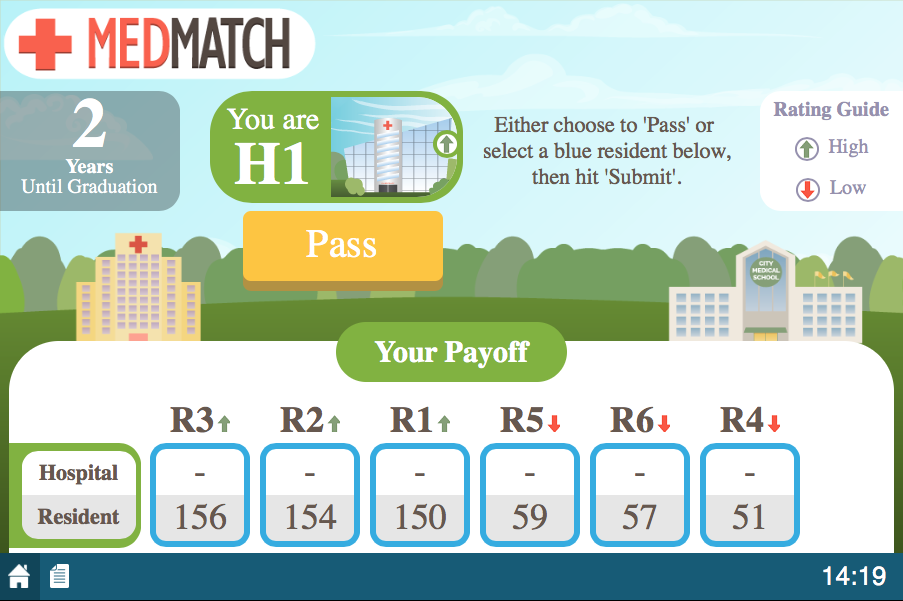To the unengaged student, economics amounts to numbers, Wall Street, markets, and ultimately a feeling of “something unrelated to me,” which could be further from the truth. With the MobLab KR Matching Game, you can start conversations with students about how economics deals with everyday decision-making and such as scenarios in which two or more people, instutions, etc. need to be matched with each other. Not clear what we mean? Let us explain.
Our KR Matching economics game implements the matching market studied by John Kagel and Al Roth. The trigger for this work was the observation that medical students and hospitals were being matched earlier and earlier in the college career of the students. You can imagine that hospitals in an attempt to recruit the most apt students, simply knocked on doors - so to speak - as early as possible. However, that meant that many matches were in fact not beneficial for both sides, as it is difficult to predict a students end performance or situation in life at the time they graduate. This is simulated by our game where student groups are split half into being medical residents and the other half being hospitals that interact in a number of matching rounds. When running the first round without intervention, matches occur inefficiently early as they did in real life. So what can be done? We can set up a rule!

Though your students might are likely not (yet) in medical school they have gone through situations that were akin. They’ve applied for college which can suffer from similar matching dynamics and even class scheduling is a good example of how people scramble for classes by a deadline. This is not the best criteria to select classes that will benefit the student and can even lead to an induced demand merely based on the scarcity of the seats.
The National Resident Matching Program (NRMP) is the best-known organization that has successfully changed the rules of hiring medical students for residency to preempt market failure. Talk to your students to determine what other markets could benefit from a matching system (e.g, refugee camps, clerkship with an appellate judge, organ donor list, housing projects, etc.), and what components would be needed to make a strong algorithm.
Would you like to learn more about our online economics games and how they can applied to real world examples? Get in touch with our team. Click here to schedule a one-on-one demo meeting.

